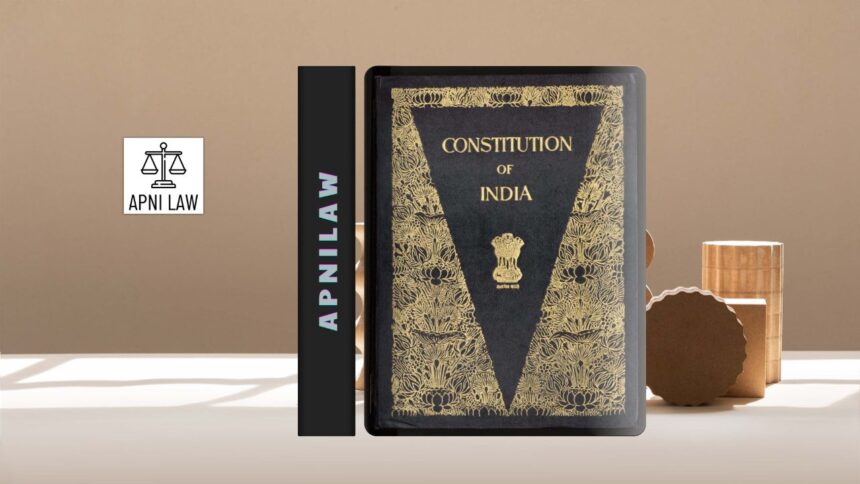Classification of DPSPs: Socialist, Gandhian, Liberal-Intellectual Principles
Introduction
The Directive Principles of State Policy, often called DPSPs, form one of the most forward-looking sections of the Indian Constitution. They are listed in Part IV, from Articles 36 to 51. Even though courts cannot enforce them, they guide governments in shaping laws and policies. The framers of the Constitution borrowed the concept from the Irish Constitution but gave it a unique Indian character. These principles push India toward social and economic justice, a goal that goes beyond basic political freedom. For easier study, scholars group the DPSPs into three categories: socialist principles, Gandhian principles, and liberal-intellectual principles. Each group reflects a different idea, but together they define the moral and social vision of India’s democracy.
Socialist Principles in DPSPs
The socialist directives highlight the Constitution’s effort to reduce inequality and promote welfare. They ask the state to make sure wealth is distributed fairly, workers are protected, and citizens have access to adequate livelihood. These principles reflect the struggles of India after independence, when poverty and class divisions dominated daily life. The framers wanted democracy to go hand in hand with social justice, not remain limited to the right to vote.
Over the decades, these principles inspired land reforms, labor protections, and welfare programs for weaker communities. Later policies like the National Rural Employment Guarantee Act, food security programs, and health initiatives also grew from this foundation. By aiming for economic fairness, the socialist DPSPs give life to the promise of equality in the Constitution.
Gandhian Principles in DPSPs
The Gandhian directives reflect Mahatma Gandhi’s ideas of self-reliance, morality, and village-centered growth. They urge the state to promote village panchayats, encourage cottage industries, and protect weaker groups such as marginalized communities and women. They also call for the promotion of moral standards, such as limiting the use of alcohol and focusing on clean, simple living.
These principles remind the nation that true progress must reach the villages, where most of India’s population lived at independence. The growth of panchayati raj institutions, promotion of khadi, and encouragement of local self-help groups all carry the Gandhian spirit. By linking governance to rural life, the Constitution made sure that democracy did not become only an urban concept. Even today, these principles shape policies that focus on grassroots development and sustainable living.
Liberal-Intellectual Principles in DPSPs
The liberal-intellectual directives reflect the influence of Western political thought and the desire to build India as a modern state. They include ideas like introducing a uniform civil code, ensuring the separation of powers, protecting the environment, and promoting international peace. They also encourage India to honor international law and maintain respect for treaties.
One of the most debated principles in this group is the call for a uniform civil code, which aims at unifying personal laws across religions. Although not yet implemented, it remains central to debates on national integration. The emphasis on protecting the environment has become especially important in recent decades. Courts and legislatures now actively cite these principles when addressing issues like pollution and climate change. The liberal-intellectual group ensures that the Constitution remains relevant to both national and global challenges.
How the Three Groups Work Together
Although classified separately, these three groups of principles often overlap in practice. Socialist ideals of equality blend with Gandhian visions of protecting vulnerable groups. Liberal-intellectual directives about environmental protection complement Gandhian calls for sustainable living. Together, they create a holistic framework for governance.
For example, the Green Revolution combined modern farming methods with support for rural farmers to ensure food security. Similarly, local self-government in villages not only reflects Gandhian thought but also fulfills socialist aims of equality and participation. This shows that the classification is helpful for study, but in practice, the principles interact to guide policies in a balanced way.
Importance of Classification
The classification of DPSPs shows the richness of the Constitution. Socialist principles stress fairness and equality, Gandhian principles bring morality and rural focus, and liberal-intellectual principles connect India with modern democratic values. Together, they make sure that governance does not lean too heavily in one direction.
This diversity also explains the adaptability of the Indian system. Welfare programs, rural development policies, and international peace initiatives all draw from different sets of DPSPs. This blend makes the Constitution dynamic, allowing it to respond to the needs of a changing society without losing its original vision.
Judicial Role in DPSPs
Courts in India have often relied on DPSPs while interpreting the Constitution. In the Kesavananda Bharati case of 1973, the Supreme Court held that harmony between Fundamental Rights and DPSPs is part of the basic structure of the Constitution. In the Minerva Mills case of 1980, the Court said that DPSPs are essential to achieving the goals of the Constitution. Laws related to land reforms, environmental protection, and legal aid have been upheld by invoking these directives. This judicial recognition proves that DPSPs, though not enforceable, carry strong constitutional weight.
Frequently Asked Questions
Why are DPSPs classified into three groups?
They are grouped into socialist, Gandhian, and liberal-intellectual principles to show their different origins and purposes. This makes it easier to understand the multiple influences on the Constitution.
Do Gandhian principles still matter today?
Yes, they remain highly relevant. Rural development programs, panchayati raj, and cottage industries still reflect Gandhi’s ideas of self-reliance and moral governance.
Can DPSPs be enforced in court?
No, DPSPs are not enforceable by courts. However, they guide governments in making policies and help courts interpret the spirit of the Constitution.
Conclusion
The Directive Principles of State Policy represent the soul of India’s constitutional vision. Their classification into socialist, Gandhian, and liberal-intellectual groups highlights the multiple influences that shaped India’s path as a democracy. Though they are not legally enforceable, their power lies in shaping policies, inspiring welfare programs, and guiding judicial thought. They ensure that liberty is not isolated from equality, and that development respects both tradition and modern needs. By weaving together these three sets of ideals, the Constitution provides India with a living guide to achieve justice, fairness, and inclusive growth.








